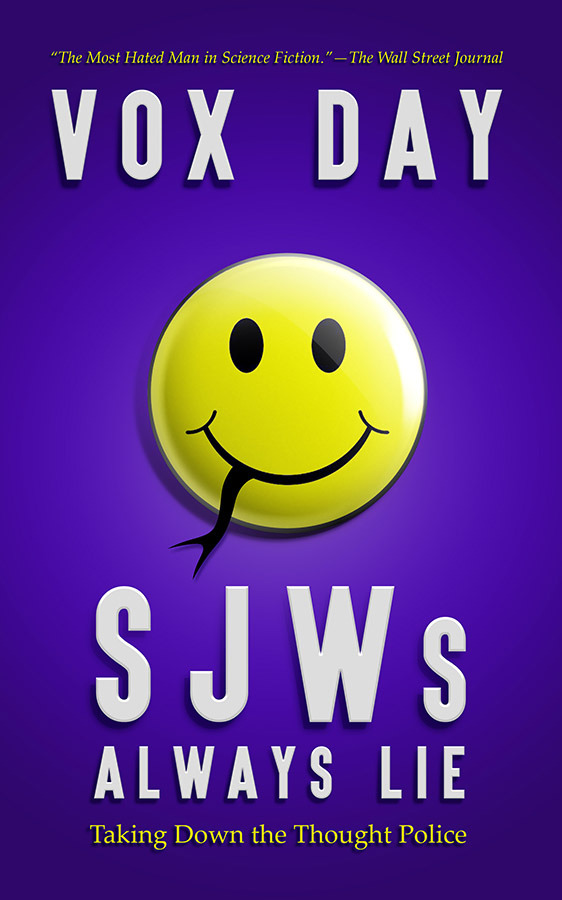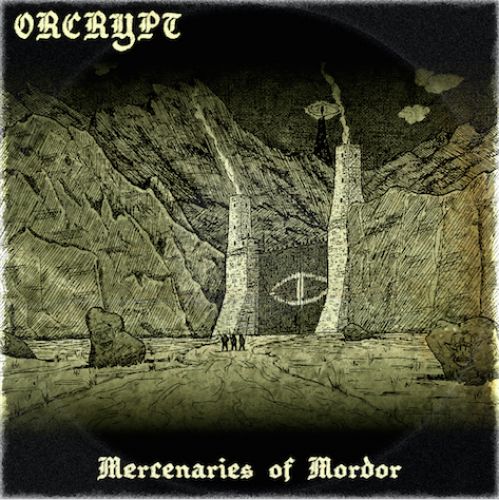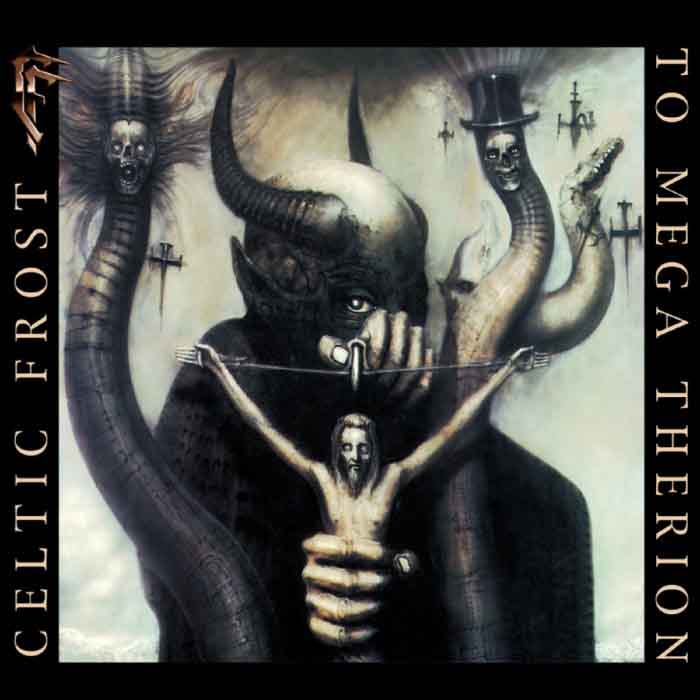
Vox Day: SJWs Always Lie: Taking Down the Thought Police
Science fiction author and video game designer Vox Day has written a handbook for dealing with SJWs including who they are and how to identify them, how they think and act, and how to defend against them and counter-attack. His writing style is easily digestible, and the information he presents is conveniently organized into enumerated laws and steps, such as the three laws of SJWs (the first of which doubles as the book’s title), the stages in an SJW attack, and the points to keep in mind during an attack.
SJWs are bullies who wield social pressure as a weapon.
Since his intent is practical, he gives only a brief overview of the ideology and history of SJWs. In his words, “knowing everything there is to know about shark DNA or what fish grizzly bears prefer to eat doesn’t do you any good when you find yourself nose to nose with a hungry one.” This focus is a strong point, as the result is a succinct instruction manual.
In the universities, in the churches, in the corporations . . . free speech and free thought are under siege by a group of fanatics as self-righteous as Savonarola, as ruthless as Stalin, as ambitious as Napoleon, and as crazy as Caligula.
They are the Social Justice Warriors, the SJWs, the self-appointed thought police who have been running amok throughout the West since the dawn of the politically correct era in the 1990s. Their defining characteristics:
- a philosophy of activism for activism’s sake
- a dedication to rooting out behavior they deem problematic, offensive, or unacceptable in others
- a custom of primarily identifying individuals by their sex, race, and sexual orientation
- a hierarchy of intrinsic morality based on the identity politics of sex, race, and sexual orientation
- a quasi religious belief in equality, diversity, and the inevitably of progress . . .
The information in this book will be useful to metal band members and concert organizers who are the targets of SJW attacks. Vox demonstrates, using numerous examples of attacks, that the worst thing these targets can do is apologise, as doing so simply hands the attackers “a confession to bolster their indictment.” In fact, if one learns only a single thing from this book, it should be that SJWs can’t be reasoned with at all: do not engage them in good faith, do not expect them to be honest in any way, and just plain do not take them seriously. This should come naturally to members of an artistic movement fascinated with aggression and violence. And yet, #metalgate has shown us that heavy metal is in the SJWs’ crosshairs.
The reason for this is that metal has been infiltrated by SJWs, whose primary allegiance is always the Narrative, which is the nebulous and frequently changing concept of social justice to which they all adhere, regardless of inherent contradictions and absurdities (see the First Law). To them, the goals of a movement or institution will always be secondary to this, though they mask this insincerity by wrapping themselves in its superficial trappings. When they look at a band like Disma, they ignore what would be most important to a metalhead — the musical, artistic and philosophical content — and instead search for anything about its members that violates their Narrative, then point and shriek hysterically until a crowd forms. Fundamentally, SJWs are bullies who wield social pressure as a weapon.
If you have any SJWs working under you, fire them.
For a work that deals with such bitter and unlikeable people, the tone of this book is surprisingly positive, and the message is hopeful. Referring to an organized campaign against SJW control of a Science Fiction award, Day says “the importance of Sad Puppies is that it shows how even in a field that has been dominated by SJWs for more than two decades, they are weaker and less numerous than most people believe.” If their weapon is social pressure then a successful resistance would consist of simply not bowing to it. Since they always lie, even to themselves, they operate with a false understanding of the world, which puts them at a disadvantage to those who are honest.
Target the enemy at every opportunity. Hit them wherever they show themselves vulnerable. Play as dirty as your conscience will permit. Undermine them, sabotage them, and discredit them. Be ruthless and show them absolutely no mercy. This is not the time for Christian forgiveness because these are people who have not repented, these are people who are trying to destroy you and are quite willing to harm your family and your children in the process. Take them down and take them out without hesitation. If you have any SJWs working under you, fire them.
The truth is that SJWs care so much about the institutions they control that they will destroy them rather than relinquish control over them. They will consume metal, video games anything else by using their crazy ideology in order to assert individual self-importance. When confronted by them, don’t apologise, but instead counterattack by ruthlessly pursuing and defending truth. In other words,
Forgive me not
This knowledge makes me strong
http://www.youtube.com/watch?v=WsAFNBrVI3Q
1 CommentTags: censorship, gamergate, metalgate, sjws, theodore beale, vox day











